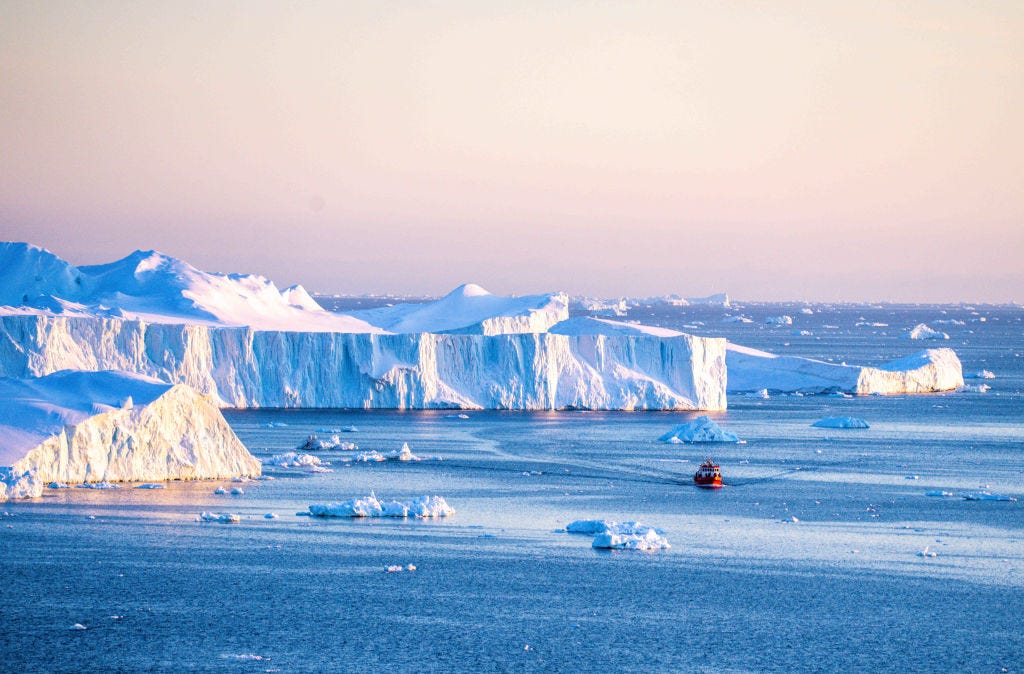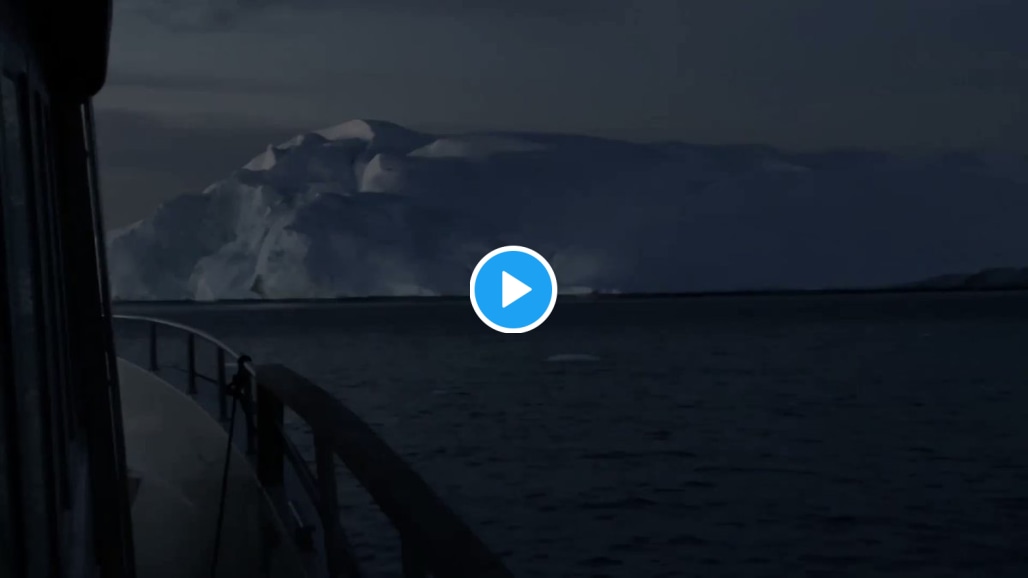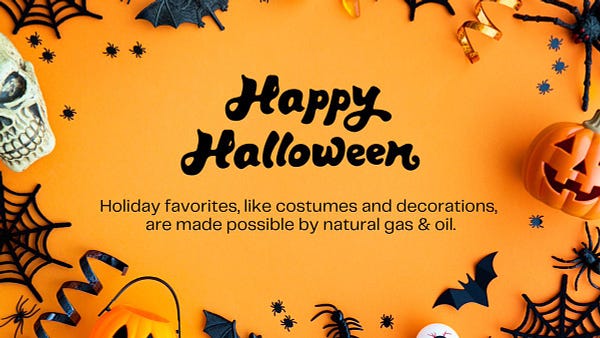A New York Times columnist went to Greenland and discovered fossil fuel talking points
In case you haven’t noticed, Elon Musk is the new owner of Twitter—and lots of people are leaving the platform because of it. That’s not good news for HEATED. Since launching in 2019, more than half of HEATED’s readers have found out about the newsletter through Twitter. The main Twitter account used to promote HEATED (mine) has lost thousands of followers since Musk’s takeover. So I’m asking for your help. HEATED currently has more than 60,000 readers. But only a very small percentage are paid subscribers. If a few more of you are able to upgrade, HEATED can invest in news ways of marketing, so we can reach more people, and ultimately produce more climate accountability journalism. If you can’t afford a paid subscription, don’t worry. You can still support HEATED by telling your friends about us, and sharing our articles far and wide. A New York Times columnist went to Greenland and discovered fossil fuel talking pointsBret Stephens' 6,000 word essay in the Times is a prime example of delay discourse.This is a special joint edition of HEATED and Popular Information, a daily political accountability newsletter by journalist Judd Legum. Popular Information is a must-read for anyone who cares about holding powerful people and entities accountable for misinformation. Conservative New York Times columnist Bret Stephens has spent years writing columns questioning climate change. So it was a surprise when, earlier this week, he announced that a recent trip to Greenland changed his mind.  For years, Bret Stephens considered himself “an agnostic on the causes of climate change.” A trip to Greenland changed his mind. nyti.ms/3TJaAv9 In a 6,000-word feature essay, Stephens said he’s now convinced that the ice sheets are melting due to human-caused warming. After speaking with scientists, risk assessors, and policy experts, he said he believes climate change, like cancer, is “manageable or curable in its earlier stages, disastrous in its later ones.” He wrote: “Global warming is a fact. So is the human contribution to it. So are observed increases in temperature and sea levels.” It was a remarkable transition for someone who previously described climate change as a “mass hysteria phenomenon” and falsely claimed that “much of the science has been discredited.” But Stephens did not apologize for spreading those falsehoods, or for any of his previous misleading remarks about the crisis. Instead, Stephens tried to convince his readers that, following his come-to-Jesus moment on climate change, he now knows how to solve the problem. (Typical first-time climate dude behavior). His approach to climate, however, is virtually indistinguishable from fossil fuel companies. Stephens said climate change should be solved by the market, not the government. He chastised activists for“alarmist” rhetoric, arguing humanity will be able to adapt. He criticized the “limitations” of clean energy, and emphasized the benefits of fracking and natural gas to lower emissions. He suggested that many people who want to address climate change do not "accept economic growth as a benefit.” To come to these conclusions, Stephens ignored many of his own sources who told him climate change would be catastrophic. For example, oceanographer Josh Willis of NASA’s Jet Propulsion Laboratory told him that scientists could not predict the “upper end” of sea level rise by 2100. Willis said it “hopefully less than seven or eight feet" but cautioned that we don't know "just how fast the ice sheets can melt." Stephens took this to mean that the upper limit of sea level rise is, in fact, 8 feet. This would literally annihilate the world’s coastal cities, home to hundreds of millions of people. Still, Stephens wrote:
Even the man who invited Stephens to Greenland is not convinced. In an interview, Oceanographer and author John Englander said that while he was “very pleased” that Stephens “acknowledged the ways he might have been shortsighted” about the climate crisis, “I would like him to acknowledge the probabilities and the devastation a little more.” “Usually, when I’m giving a presentation, most people come to understand that it’s a certainty that the ice sheets will melt to the point where global sea level is 5 to 10 feet higher,” he said in an interview. “[Stephens] accepts this, but it’s still a worst-case scenario in his mind … I wish he had been a lot stronger.” The Times marketed Stephens’ piece as if it were a fresh and important new approach to tackling climate change. In reality, it is a collection of discredited talking points from the fossil fuel industry, and a prime example of delay discourse. Delay discourse, as defined by scientists, are talking points that “accept the existence of climate change, but justify inaction or inadequate efforts.” It has been branded “the new denial” by, ironically, The New York Times – and it is the fossil fuel industry’s favorite way to pretend they care about climate change while continuing to pollute as long as possible. Here are a few ways Stephens’ rhetoric mimics the fossil fuel industry’s delay discourse. The market will solve everythingStephens’ core thesis is that his trip to Greenland "changed my mind about climate change while reinforcing my belief that markets, not government, provide the cure." This is a core argument made by the oil and gas industry, through their primary lobbying group, the American Petroleum Institute (API). In a 2016 tweet, API asserted that "[m]arket forces can achieve our nation’s energy, climate & econ[omic] goals better than gov[ernment] mandates." In a Facebook ad last year, API asserted: "America’s energy leadership has delivered economic growth and environmental progress. But burdensome regulations and anti-industry legislation threatens U.S. national security and global competitiveness." Stephens makes the exact same argument in his column. The only difference is that the fossil fuel industry didn't have to pay for it. As "proof" that market forces can address climate change, Stephens cites the history of water use. "In the United States, the difference between total water consumption in 1965 and 2015 is less than 4 percent," Stephens says. "In the same span of time, population grew by more than 60 percent." Stephens attributes that success to farmers who "gradually adopted sprinkler and drip irrigation systems, rather than more wasteful flood irrigation, not to conserve water but because the technology provided higher crop yields and larger profit margins." What Stephens does not address is that farmers generally source their own water or buy it from the government. So changes that result in less water usage save farmers money, and there is no industry lobbying for excessive water use. The fossil fuel market is completely different. There is a powerful industry that wants to produce and burn as much oil and gas as possible. In the absence of government action, that is exactly what they will do. Climate activists want to take away everything you loveStephens writes that any policies related to climate change need to "align with human nature." He argues that phasing out fossil fuels is impossible because you can't have "modern life without plastics, made mainly from the hydrocarbons ethylene and propylene, or steel, made with coking coal and natural gas, or cement or asphalt." Giving up fossil fuels would require millions of people to return to "farming, while accepting a world that can feed far fewer people," Stephens writes. Stephens says humanity has an "overwhelming and, for now, inescapable dependence on fossil fuels." The fossil fuel industry is also eager to argue that modern life would be destroyed without oil and gas. Earlier this week, API tweeted that the "natural gas & oil industry helps bring Halloween traditions to life." The group emphasized that "costumes and decorations are made possible through natural gas and oil."  The natural gas & oil industry helps bring Halloween traditions to life for consumers across the country. "What can you make from one barrel of oil?" Conocco Phillips asked. "Costumes, masks, wigs, candy buckets and, most importantly, toothbrushes!"  What can you make from one barrel of oil? Costumes, masks, wigs, candy buckets and, most importantly, toothbrushes! (Plus glow sticks, flashlights and the camera components that help you capture every moment.) We hope you have a safe and happy #Halloween! bit.ly/3Fk0Gf3 But just as there are renewable alternatives to oil and gas for transportation and electricity, there are alternatives to plastics, including reusable and biodegradeable materials. Many communities, most recently New South Wales, are banning single use plastics. A Halloween without plastic is possible and would not require kids to stop trick-or-treating. (Here is a step-by-step guide.) But Stephens, like the fossil fuel industry, pretends that the choice is between continuing to use fossil fuels and abandoning modern life. The solution to the fossil fuel problem is more fossil fuelsStephens argues that if the world wants to get serious about climate change, it should ignore "environmental activists" and produce more natural gas:
Stephens' view on natural gas is virtually identical to the oil and gas industry:
While it's true that natural gas emits less carbon dioxide than coal, presenting natural gas as a solution to climate change ignores the science. According to the latest report from the Intergovernmental Panel on Climate Change (IPCC), between 1850 and 2019, approximately 2,390 gigatons of carbon dioxide were emitted worldwide. That warmed the planet by about 1.1 degrees Celsius. To have a chance to cap total warming at around 2 degrees Celsius, which is necessary to avoid many of the very worst impacts, the IPCC estimates that the world can emit about 1,150 more gigatons. The point that the IPCC makes clear is that there is no "sustainable" rate of CO2 emissions. Switching from a fossil fuel that emits somewhat less carbon will not cut it. It will still drive us toward the most catastrophic impacts of climate change. Emissions need to go to net zero sooner rather than later. HEATED contains climate accountability journalism you won’t find anywhere else—and it’s free for everyone. To keep it free, however, we need support from our readers. HEATED accepts no advertising, and relies on readers like you to exist. If you value this work and can afford it, consider becoming a paid subscriber today. CATCH OF THE DAY: We only have room for one palate cleanser today, so we’re going with one of Fish’s friends. This little guy is Pork Chop, a very lazy pitbull who loves cuddles and kibble. His favorite activity is helping Erin, his cuddler-in-chief, with her climate-friendly lifestyle by eating all her food scraps. Want to see your furry (or non-furry!) friend in HEATED? Send a picture and some words to catchoftheday@heated.world. You’re a free subscriber to HEATED. For the full experience, become a paid subscriber. |
Older messages
The questions Semafor ignored
Friday, October 28, 2022
Judging from the news company's canned response to other outlets, it's easy to see why HEATED's inquiry about Chevron's misleading ad went unanswered.
Semafor's infuriating climate misinformation
Wednesday, October 26, 2022
Ben Smith's news outlet promised to be "something new," but it's spreading tired fossil fuel industry propaganda just like the rest.
Tim Michels doesn’t know about the wild rice problem
Friday, October 21, 2022
Wisconsin's GOP gubernatorial candidate has claimed ignorance about one of the state's most pressing environmental issues. Wonder why?
The curious origins of the anti-ESG movement
Friday, October 14, 2022
The anti-"woke investing" movement was not created by financial experts. It was created by two of the fossil fuel industry's most notorious climate disinformers.
Fake climate group's ads likely reached millions
Sunday, October 9, 2022
United for Clean Power's deceptive ads have ceased—but not before they were shown on Google over 2.5 million times.
You Might Also Like
More AI Is Coming to Your Google Search Results 🙃
Thursday, March 6, 2025
5 Reasons You Might Qualify for Lower Car Insurance Premiums. Did you ask for "AI Mode"? Not displaying correctly? View this newsletter online. TODAY'S FEATURED STORY More AI Is Coming to
Kim K's Wet T-Shirt & Thong Swim Set May Break The Internet... Again
Thursday, March 6, 2025
Plus, how to manifest with your nail color, your daily horoscope, and more. Mar. 6, 2025 Bustle Daily 7 spring 2025 shoe trends. TREND REPORT Rihanna's Snakeskin Boots, Kylie's "Naked
What It Really Takes to Be a Millionaire by 33
Thursday, March 6, 2025
Today in style, self, culture, and power. The Cut March 6, 2025 PERSONAL FINANCE What It Really Takes to Be a Millionaire by 33 She worked multiple jobs, saved half her income, and rarely went out or
"I wanted and I sometimes got—the Moon!"
Thursday, March 6, 2025
͏ ͏ ͏ ͏ ͏ ͏ ͏ ͏ ͏ ͏ ͏ ͏ ͏ ͏ ͏ ͏ ͏ ͏ ͏ ͏ ͏ ͏ ͏ ͏ ͏ ͏ ͏ ͏ ͏ ͏ ͏ ͏ ͏ ͏ ͏ ͏ ͏ ͏ ͏ ͏ ͏ ͏ ͏ ͏ ͏ ͏ ͏ ͏ ͏ ͏ ͏
The Ultimate Workouts for Men Over 40 💪
Thursday, March 6, 2025
Build Muscle At Age 40+ With Our Best Selling Program Men's Health Shop logo Build a Stronger, Fitter Body in Your 40s and Beyond. View in Browser Muscle After 40, #1 program to build muscle after
The ultra-chic item that will turn your home into a five-star hotel
Thursday, March 6, 2025
A beloved Brighton Beach grocery store opens a Manhattan market.
Painting Snakes
Thursday, March 6, 2025
Slice-of-life comics by Edith Zimmerman. ͏ ͏ ͏ ͏ ͏ ͏ ͏ ͏ ͏ ͏ ͏ ͏ ͏ ͏ ͏ ͏ ͏ ͏ ͏ ͏ ͏ ͏ ͏ ͏ ͏ ͏ ͏ ͏ ͏ ͏ ͏ ͏ ͏ ͏ ͏ ͏ ͏ ͏ ͏ ͏ ͏ ͏ ͏ ͏ ͏ ͏ ͏ ͏ ͏ ͏ ͏ ͏ ͏ ͏ ͏ ͏ ͏ ͏ ͏ ͏ ͏ ͏ ͏ ͏ ͏ ͏ ͏ ͏ ͏ ͏ ͏ ͏ ͏ ͏ ͏ ͏ ͏ ͏ ͏ ͏
Everything You Need to Start Building Muscle at Home
Thursday, March 6, 2025
Everything you need to know to get started with your new workout routine. View in Browser Men's Health The Best Gear to Start Weight Training The great flaw of home gym-building is thinking you
More On Urbanism and Natalism
Thursday, March 6, 2025
"Cities depress fertility" is not a metaphysical truth ͏ ͏ ͏ ͏ ͏ ͏ ͏ ͏ ͏ ͏ ͏ ͏ ͏ ͏ ͏ ͏ ͏ ͏ ͏ ͏ ͏ ͏ ͏ ͏ ͏ ͏ ͏ ͏ ͏ ͏ ͏ ͏ ͏ ͏ ͏ ͏ ͏ ͏ ͏ ͏ ͏ ͏ ͏ ͏ ͏ ͏ ͏ ͏ ͏ ͏ ͏ ͏ ͏ ͏ ͏ ͏ ͏ ͏ ͏ ͏ ͏ ͏ ͏ ͏ ͏ ͏ ͏ ͏
Women in Sign Painting: Burds of the Brush
Thursday, March 6, 2025
Rachel E Millar shares her and her guests' reflections on the first Burds of the Brush in Glasgow. BLAG Magazine: Adventures in Sign Painting Craft, Community & Culture Women in Sign Painting:








